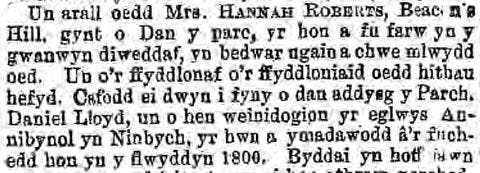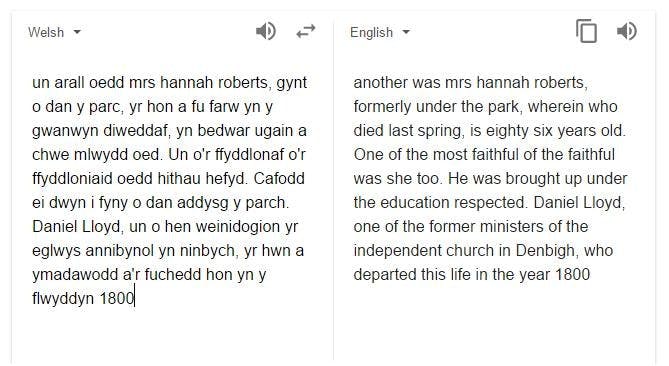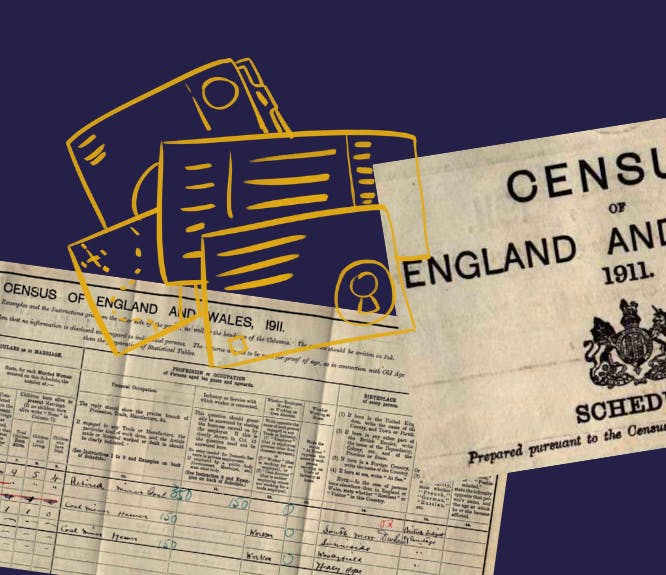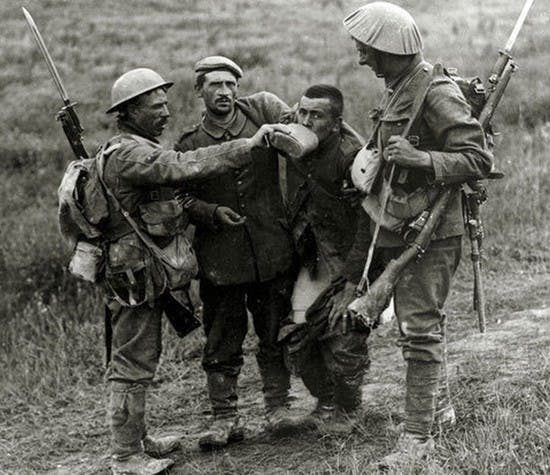How to trace Welsh ancestors
4-5 minute read
By The Findmypast Team | July 2, 2024

The ultimate guide to unlocking amazing details about your Welsh heritage.
If you've got a Jones, Evans or Davies in your family tree, you'll know that rooting out Welsh ancestors is tricky, but we can help. Findmypast is home to an unrivalled collection of family records that can help you trace Welsh ancestors.
Find Welsh ancestors now
Enter a few details to see your family's records at your fingertips.
Having the records to hand, however, is just part of the battle. To help you keep up with the Jones, we've put together this short guide of things to look out for when exploring your Welsh past.
Welsh surnames explained
First things first: there isn't as much diversity in Welsh surnames as there is in English surnames. Fixed family names are a relatively recent concept in Wales. In some areas, they weren't the norm until the 19th century. This means that Welsh naming patterns followed patronymic rules for centuries and you'll see this as you explore the country's historical records.
Similarly to Irish naming traditions, with the surname prefixes Mac, O' and Ni representing 'son of', 'descendent of' and 'daughter of', Welsh naming conventions dictated that ap or ab (shortened versions of the Welsh mab, meaning 'son') and ferch would prefix Welsh surnames which, owing to the patronymic naming rules, would be the father's name. So, for example, the name Llewellyn ap Hywel would refer to Llewellyn, son of Hywel.
This goes some way to explaining the lack of surname diversity in Wales. Jones, Evans, Davies and Williams are all patronyms, meaning son of John, Evan, David and William respectively. Until the advent of fixed surnames in Wales, a surname would change between generations. Ifan ap John's son might be called Bryn ap Ifan, or even Bryn ap Ifan ap John.
New surnames, old Clues
The anglicisation and modernisation of Welsh names has given us a number of surnames today with clues to their origins. When fixed surnames were introduced to Wales, the pool from which they could be drawn was not very extensive, hence the proliferation of the same surnames around the country.
There are, however, some remnants of the old patronyms which can offer clues to the names of your ancestors. For example, the origins of the surname Powell are ap Hywel (Hywel is pronounced similarly to 'howl'). Bevan is ab Evan. Bowen is from ab Owen. These hidden clues are worth bearing in mind when searching for your family, particularly as you go further back into the Welsh parish records.
Llocation, Llocation, Llocation
Naming abnormalities undoubtedly make it trickier to track down your Welsh ancestors' records. After all, how certain can you be that your Evan Jones is the right Evan Jones? In Wales, you can learn a lot from a first name, so if you have any information at all on the location or parish your family lived in, this can help your progress massively.
For example, the following Welsh names relate directly to location or topography:
- Bryn - hill
- Cefni - a river in Llangefni
- Ceredig - Ceredigion, a Welsh county
- Derwen - the Welsh word for 'oak tree'
- Merion - An area in Gwynedd
A full list of such names can be found here (boys' names) and here (girls' names).
Discover 50 Welsh notable names across the the UK in the 1921 Census
View this map full screenFinding the birthplace of your Welsh ancestor is often essential when it comes to confirmation you have the right person. Our England and Wales census records from 1841-1911 include places of birth, so they're a great resource to explore. And from 1891 onwards, the census also included details on a person's ability to speak Welsh.
Check the newspapers
Our archive of British and Irish newspapers is the largest of its kind anywhere online and contains many Welsh titles. These historical papers can give you a wealth of detail about your Welsh ancestors. Many titles ran articles in Welsh, meaning that you can glean really useful information with very little effort. For example, the Welsh word for 'widow' is gweddw. Use it to locate death notices in a Welsh language newspaper.

Copyright The British Library Board.
This article from the Baner ac Amserau Cymru, dated 13 November 1867 is about Mrs Hannah Roberts, who had recently died at the age of 86. She is described as 'one of the most faithful of the faithful' who was educated by Daniel Lloyd, a respected minister at the independent church in Denbigh, and who died in 1800. Information on the names, occupations, addresses and death years of two individuals isn't bad for a quick search.
Don't worry, speaking Welsh isn't essential. Google Translate does a very good job:

Image: Google
Here are some other Welsh words that will come in handy:
- Briod - married
- briodferch - bride
- eni - born
- mam - mother
- tad - father
- bedyddio - baptised
Why not pop them into our newspaper search and see what comes back?
Ready to find Welsh ancestors?
If you have a good idea about locations and the names in your Welsh family, we have some great record sets that you can explore. Highlights include:
- Parish records - The extensive collection covers church records from the entire country and many include the ability to search in Welsh as well as English. You'll only find these amazing documents online at Findmypast.
- 1939 Register - Discover your Welsh family, home and community on the eve of the Second World War with this premium collection.
- Census records - Dating from 1841 to 1911, censuses are treasure troves of information on your Welsh relatives. Discover full families, their occupations and ages, generation after generation.
And once you've started finding your Welsh family in the bigger record collections, try digging a little deeper with these, sometimes overlooked, genealogy gems.
Related articles recommended for you

Seven surprising finds in the 1911 Census
Discoveries

'Their hunger will not allow them to continue': the victorious London dockers' strike of 1889
History Hub

Discover the forgotten stories of D-Day through the eyes of the soldiers who were there
Discoveries

